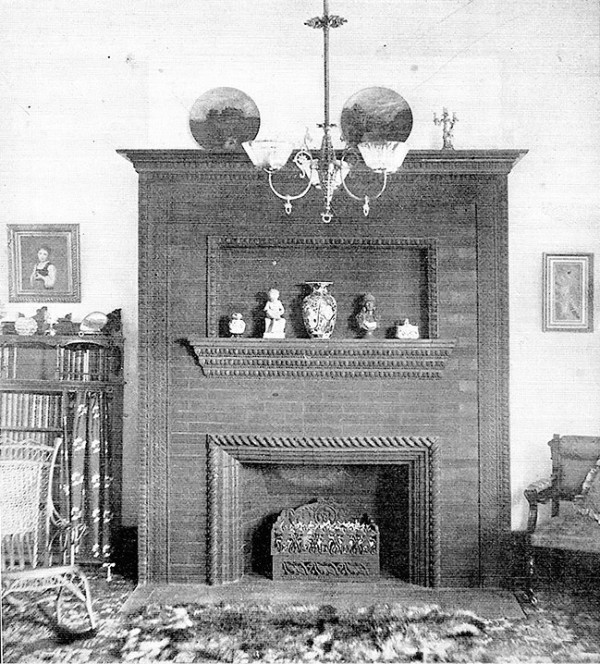
Sketch No. 4 Philadelphia and Boston Face Brick Company, Sketch Book, 1904, ornamental face brick produced by the Philadelphia and Boston Face Brick Company incorporated into a fireplace design.
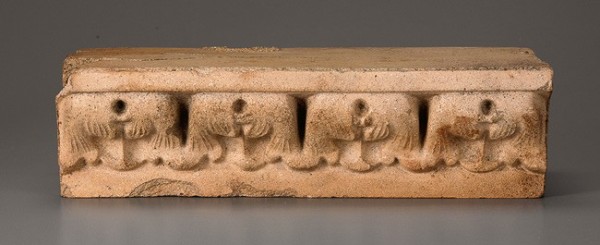
Ornamental face brick, Philadelphia and Boston Face Brick Company, Milltown, New Jersey, 1887–1904. Earthenware. Excavated from the former factory site in the 1990s. (Unless otherwise noted, photos by Robert Hunter.)
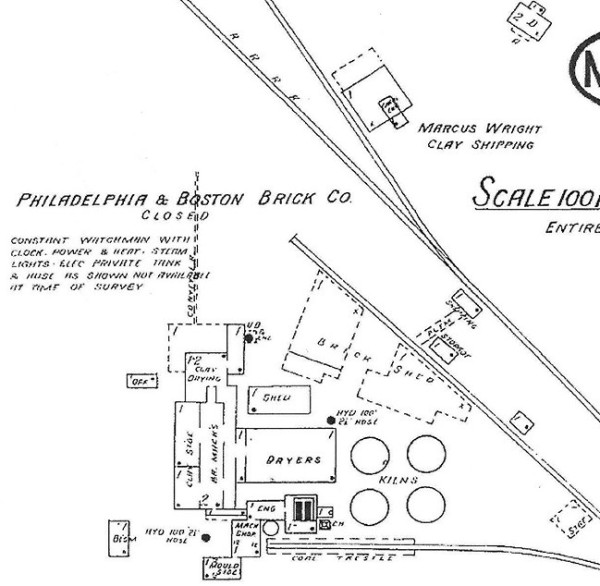
Sanborn Fire Insurance Map, Milltown, New Jersey, 1924. Although grouped with the Milltown Sanborn Fire Insurance Map, the Philadelphia and Boston Brick Company was situated in East Brunswick along the Raritan River Railroad. Note the “conveyor” running from the clay drying building near the top. The open area around the conveyor may have been the clay pits, and is where many of the waster bricks were discovered.
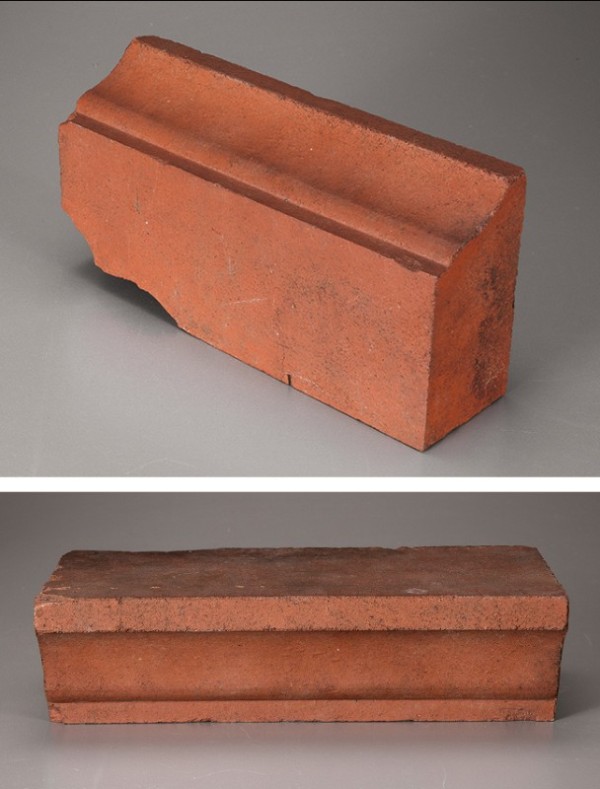
Molded face brick, Philadelphia and Boston Face Brick Company. Milltown, New Jersey, 1887–1904. Earthenware. Excavated from the former factory site in the 1990s.
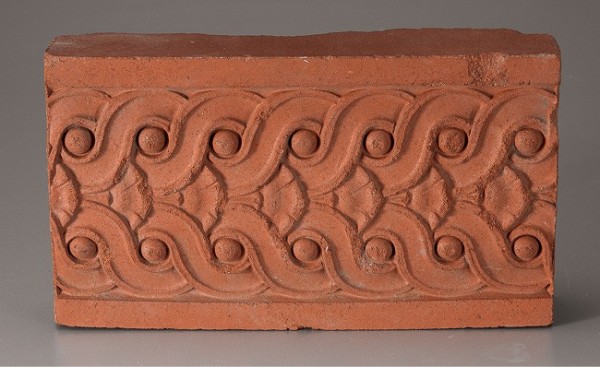
Molded face brick in the guilloche design, Philadelphia and Boston Face Brick Company, Milltown, New Jersey, 1887–1904. Earthenware. Excavated from the former factory site in the 1990s.
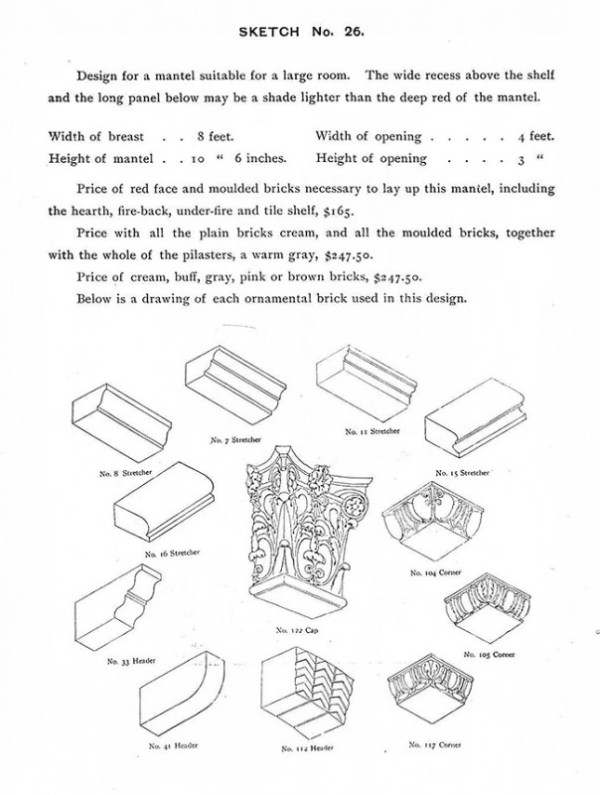
Sketch No. 26, Philadelphia and Boston Face Brick Company, Sketch Book 1904.
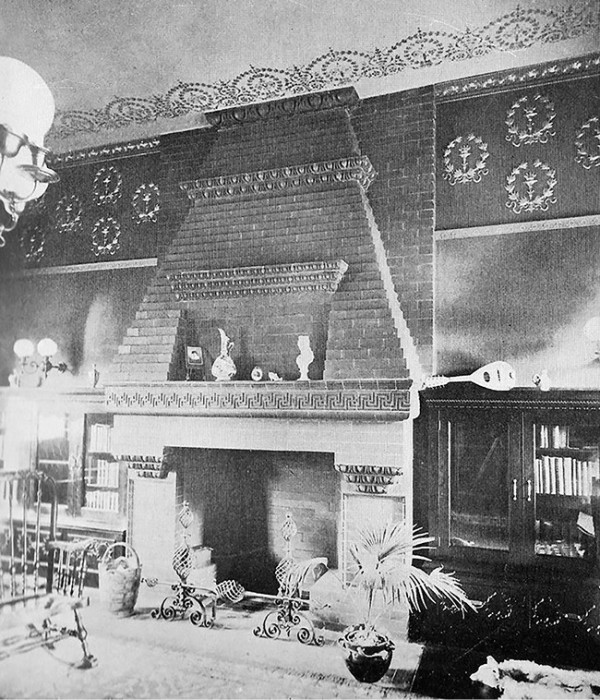
Sketch No. 12, Philadelphia and Boston Face Brick Company, Sketch Book 1904. The design is adapted from a “mantel frequently seen in England and France, with a hood extending to the ceiling.”
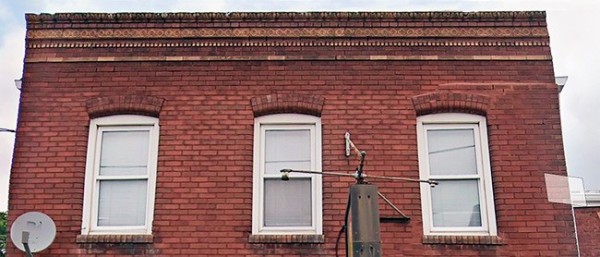
Commercial building at 61 Whitehead Ave., South River, New Jersey, with a decorative cornice of ornamental face brick.
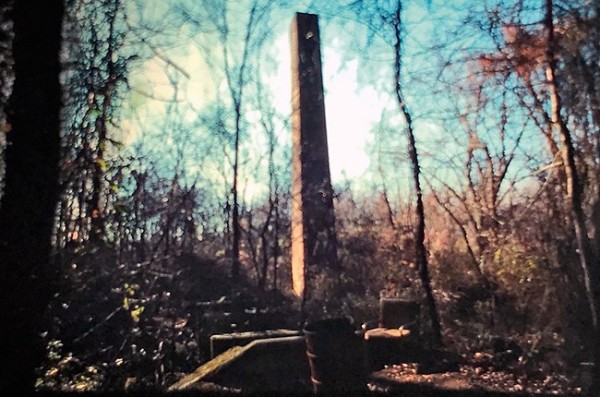
Photograph taken in 1988 showing the ruins of the former factory site. (Photo, Mark Nonestied.)
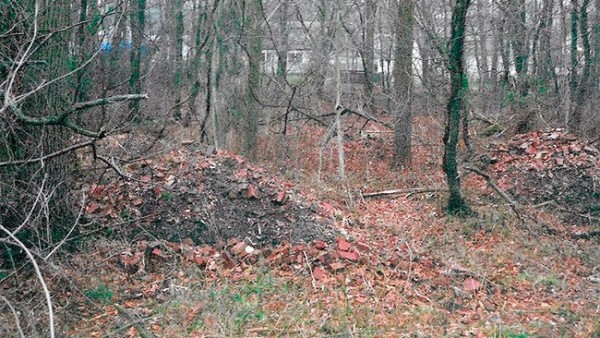
The former site of the Philadelphia and Boston Brick Face Company prior to redevelopment in the 1990s. Note the large piles of waster bricks that recently had been uncovered during environmental trenching. (Photo, Mark Nonestied.)
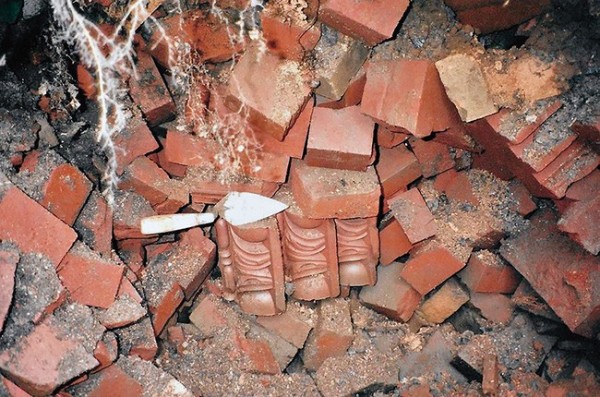
Waster bricks uncovered in the 1990s during redevelopment of the property. Many exhibited firing imperfections such as cracks, spalling, and fusing. The three examples below the trowel are fused together. (Photo, Mark Nonestied.)
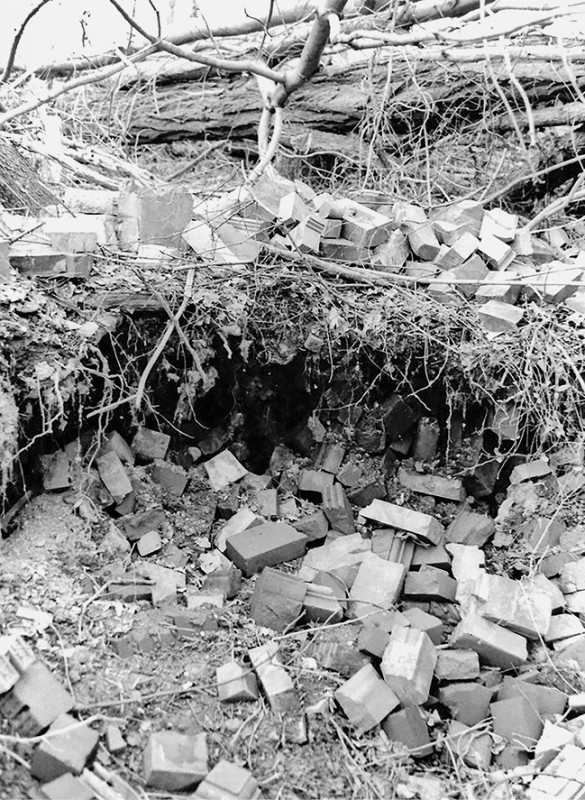
Waster bricks just below the surface. (Photo, Dawn Turner.)
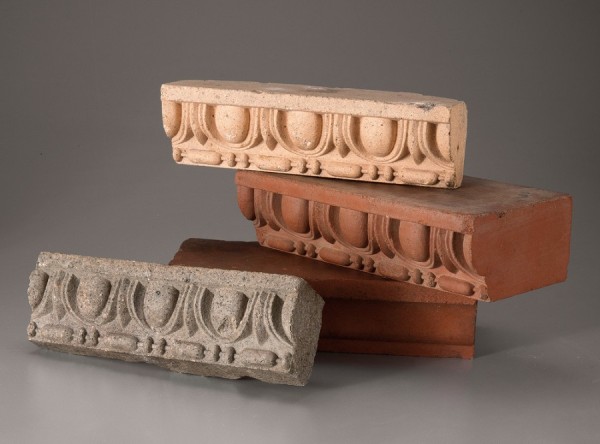
Waster bricks, Philadelphia and Boston Face Brick Company, Milltown, New Jersey, 1887–1904. Earthenware. Excavated from the former factory site in the 1990s. These examples show the range of colors, including red, buff, and mottled gray.
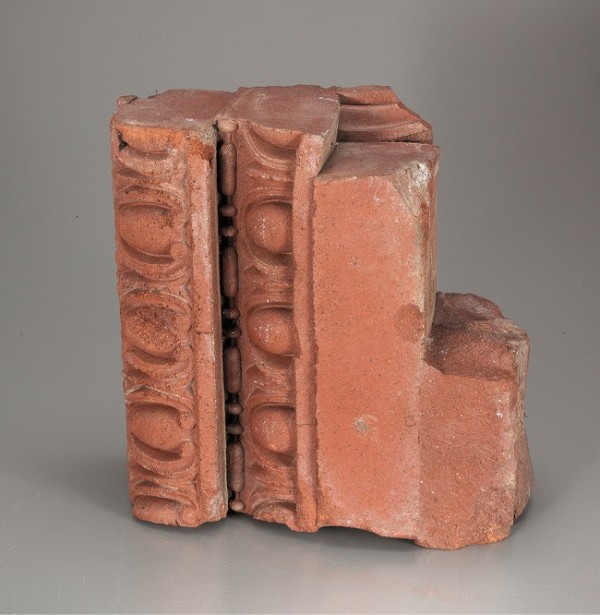
Egg-and-dart brick wasters, Philadelphia and Boston Face Brick Company, Milltown, New Jersey, 1887–1904. Earthenware. These pieces were fused together by the heat of the kiln.
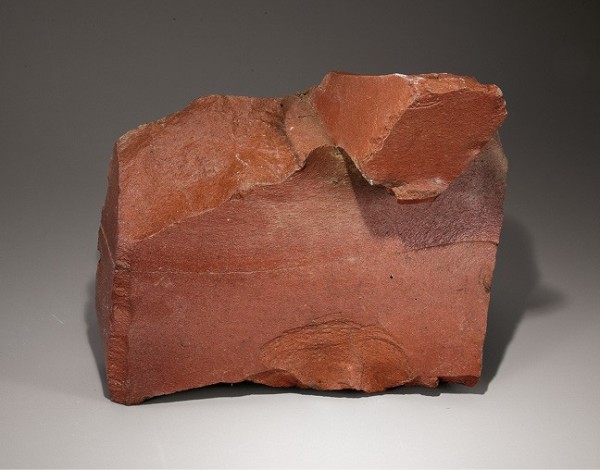
Grossly overfired bricks, Philadelphia and Boston Face Brick Company, Milltown, New Jersey, 1887–1904. Earthenware.
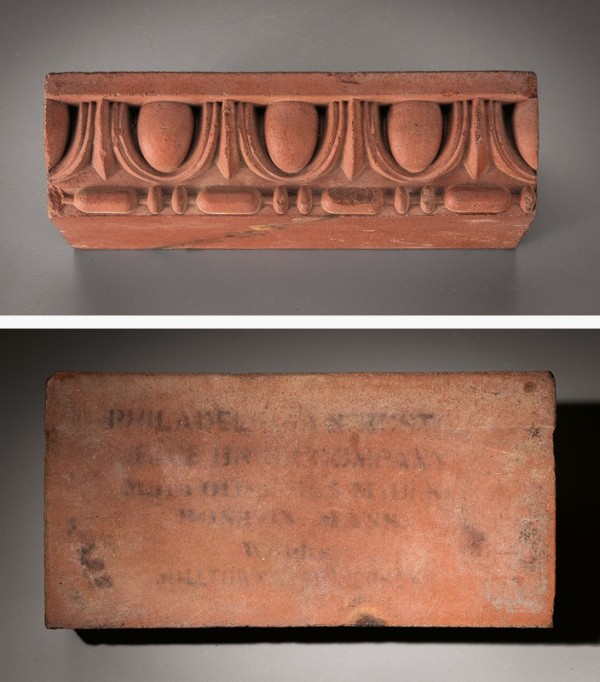
Waster brick above and detail below of waster brick recovered from the former factory site showing a stenciled factory label, the only example recovered. “Philadelphia & Boston / Face Brick Company / [Main Office 165?] Milk [St?] / Boston Mass / Works / Milltown.”
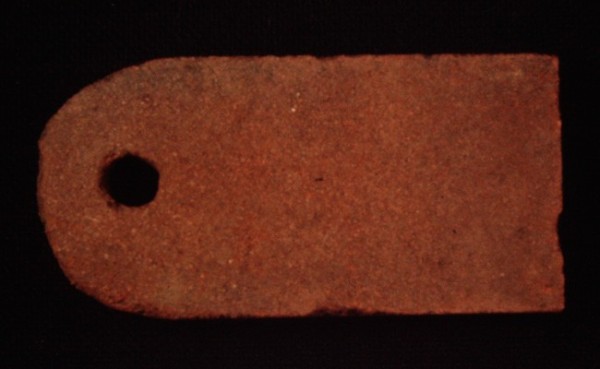
Test tile, Philadelphia and Boston Face Brick Company, Milltown, New Jersey, 1887–1904. Earthenware. Excavated from the factory waster pile. (Photo, Mark Nonestied.)
